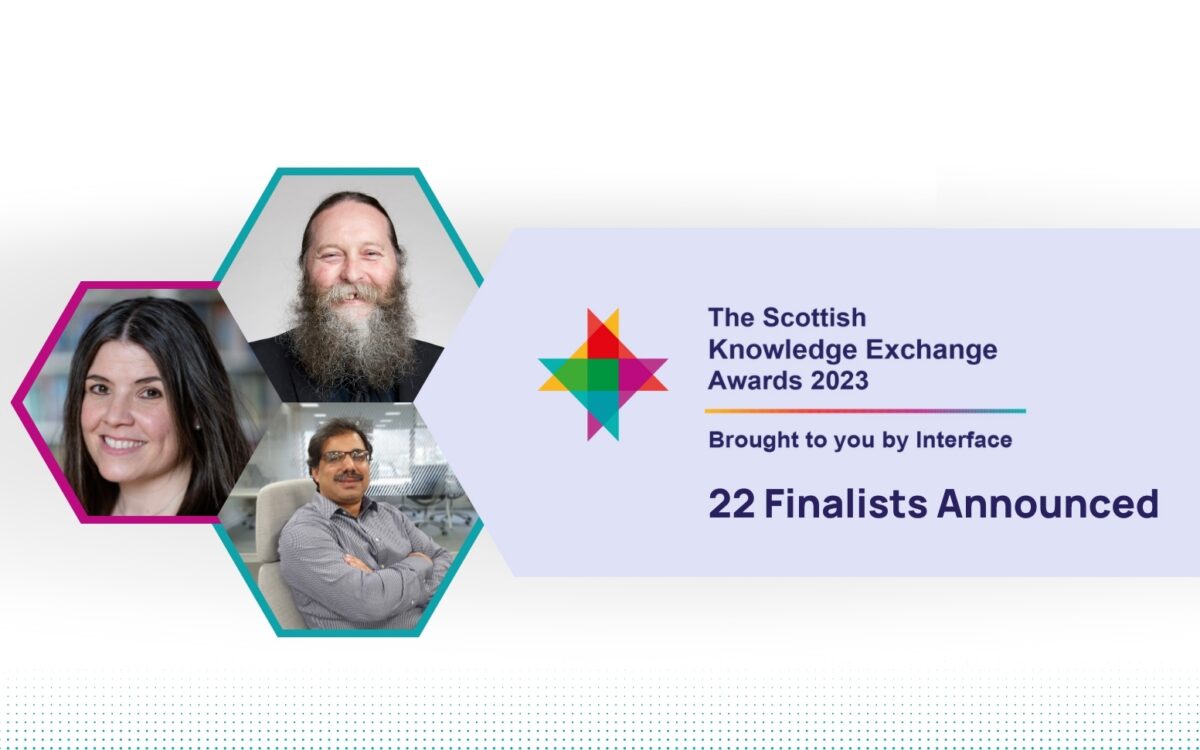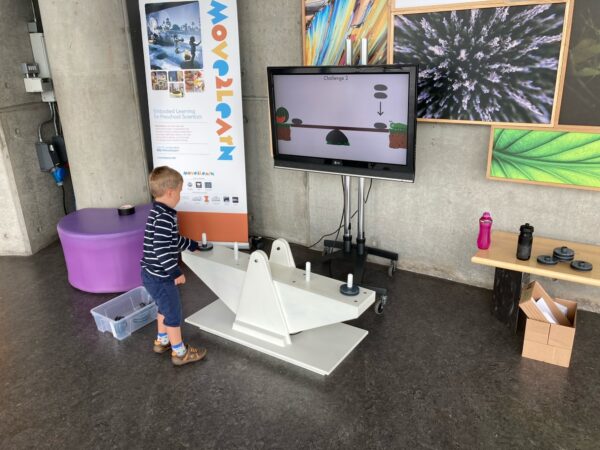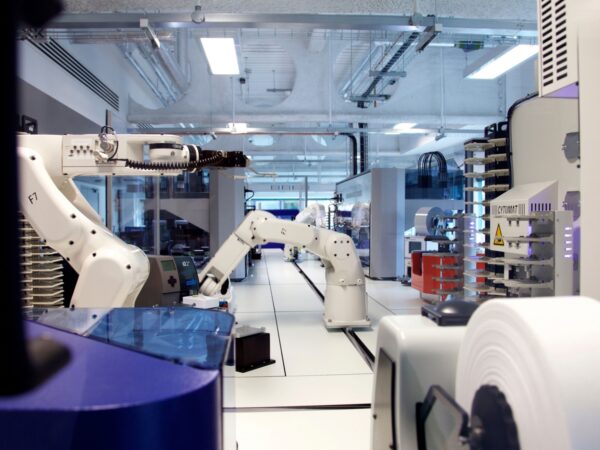
A partnership to engineer biology for healthcare, a circular economy collaboration and a digital health initiative from the University of Edinburgh have been named finalists in the Scottish Knowledge Exchange Awards 2023.
The Centre for Excellence in Bioprocessing 2.0 (CEB), CloudEARTHi and the Industrial Centre for Artificial Intelligence Research in Digital Diagnostics (iCAIRD) have all been shortlisted in the awards, which celebrate partnerships between academia and businesses, third sector or public sector organisations.
Biotechnology partnership
The CEB is a strategic partnership led by FUJIFILM Diosynth Biotechnologies (FDB) - one of the world's leading providers of contract process development and manufacturing services for the biopharmaceutical industry – and the University of Edinburgh. It is a finalist in the ‘Multiparty Collaboration’ category.
The CEB, supported by the University’s commercialisation service, Edinburgh Innovations (EI), brings together FDB industry insight and knowledge with world-leading research expertise from the Universities of Edinburgh, Manchester and York, and industry-specific skills training from the Industrial Biotechnology Innovation Centre (IBioIC).
Under the academic guidance of Professor Susan Rosser, Director of the Edinburgh Mammalian Synthetic Biology Research Centre, it aims to perform innovative research and to train people to meet the future demands of biologics production, a rapidly expanding sector where the UK has particular strength.
Biologics are complex medicines, from vaccines to gene therapies, produced by combining natural sources - human, animal, or microorganism - with cutting-edge technologies. Though currently costly to produce, biologics have the potential to transform treatment of life-limiting diseases including cancer, haemophilia and rheumatoid arthritis.
Lorraine Kerr, senior strategic partnerships manager at EI, said:
We are extremely proud to be supporting this innovative partnership that has so much potential to transform lives.
The CEB aims to accelerate the development of biologics, making them more cost effective to produce and therefore accessible to all. ”
Embedding the circular economy in business
Finalist for the 'Making an Environmental Difference' award, CloudEARTHi brings together six European partners to build capacity for higher education innovation in the areas of circular economy, sustainability and big data.
One key output and focus of the award nomination is the development of an Earth Centred Business Design Tool (ECBD), led by EI’s circular economy and sustainability team. This tool enables the development of low-carbon, circular startups, which will be essential for a just transition to net zero.
The ECBD is a both product and a service, formed of a series of unique exercises and business tools, which enables founders to think differently about how they can operate to build a more sustainable future.
Sophie Rippinger, circular economy and innovations manager at EI, said:
We identified a gap in business development models for early startups, so we developed a framework that would allow them to embed circular and net-zero principles from the beginning.
This enables businesses to be a net force for good, opening up new markets, customer segments and income potential without environmental harm.
With this framework we don’t want founders to do business as usual, we want them to build a business that operates within planetary boundaries – that is sustainable and resilient, as well as profitable. ”
AI and data for healthcare
Another finalist in the ‘Multiparty Collaboration’ category is pan-Scotland collaboration iCAIRD, involving the universities of Edinburgh, Glasgow, Aberdeen and St Andrews; the NHS and industry partners Canon and Philips, amongst others.
This centre of excellence focuses on the application of artificial intelligence to digital diagnostics, bringing clinicians, health planners and industry together, facilitating collaboration between research-active clinicians and innovative SMEs to better inform clinical questions, and ultimately to solve healthcare challenges more quickly and efficiently.
Using the Edinburgh International Data Facility, EPCC will test algorithms in conjunction with the University of Glasgow to analyse images in a highly secure setting. As the Scottish hub for Health Data Research UK, the University will also support development and implementation of advanced analytical tools and methodologies with EPCC to build the first national pathology research image data archive.
These will be the eighth annual Scottish Knowledge Exchange Awards, organised by Interface, which connects businesses from all sectors to Scotland’s universities, research institutes and colleges. Winners will be announced at an awards dinner on March 23.
Related links


